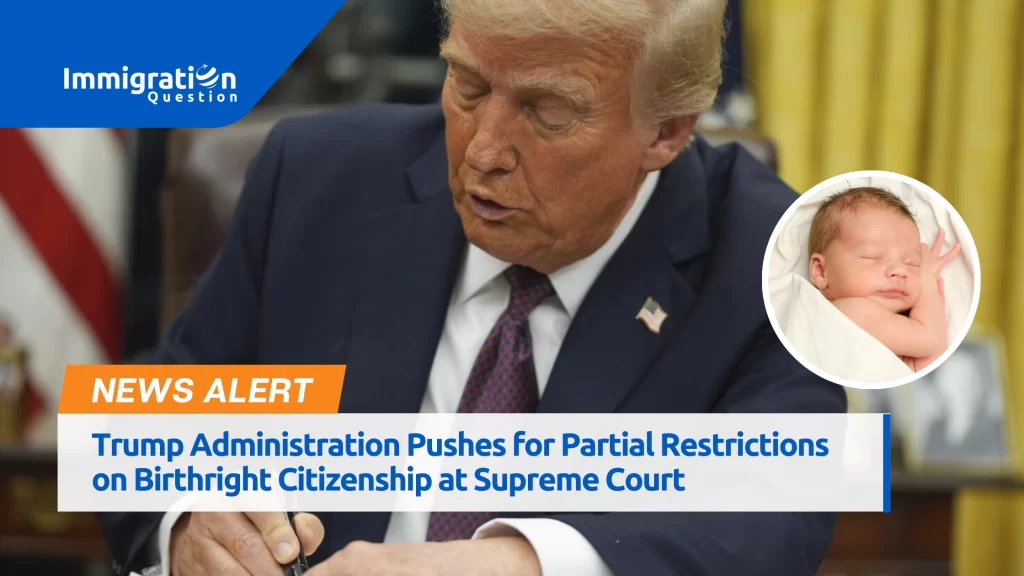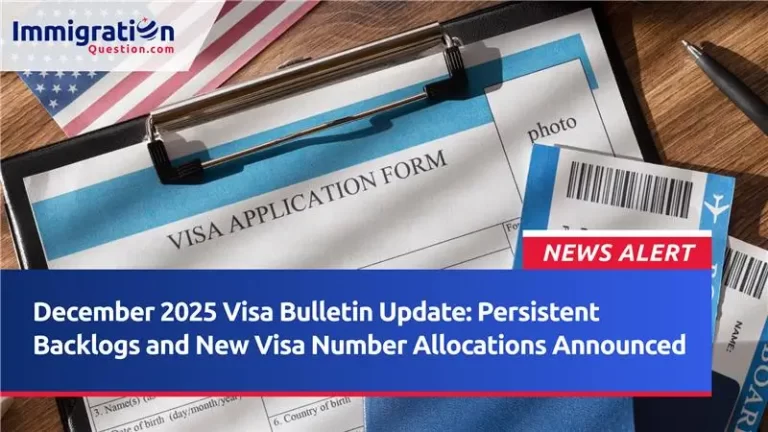President Trump has requested that the Supreme Court grant his administration permission to partially commence enforcing its restrictions on birthright citizenship while the ongoing legal battle over the policy continues. The policy, which is currently blocked nationwide, seeks to deny U.S. citizenship to children of undocumented immigrants. If implemented, the case could set a precedent for executive authority and the future of immigration policy in the U.S.
The Fight Over Birthright Citizenship
President Trump has asked the U.S. Supreme Court to permit partial enforcement of its restrictions on birthright citizenship amid ongoing legal disputes. The request was made as an emergency application to the Supreme Court after several lower courts blocked President Donald Trump’s order shortly after beginning his second term.
Court Fights and Appeals
Maryland, Massachusetts, and Washington judges initially halted the executive order nationwide. Despite the administration’s appeals, three federal appellate courts—including one in Massachusetts—have upheld the block. The policy aims to deny U.S. citizenship to children born after February 19, 2025, to undocumented immigrant parents. Additionally, this policy would restrict government agencies from issuing citizenship documents to affected individuals.
Several states, civil rights groups, and individuals have challenged the executive order, arguing that it violates the 14th Amendment, which explains that anyone born in the U.S. automatically becomes a citizen of the United States, regardless of their parent’s status.
The Administration’s Legal Argument
The Justice Department contends that lower court judges lack the authority to issue injunctions affecting the nation. Rather, the administration argued that the Supreme Court should allow the policy to take effect partially for everyone, with an exemption for only those directly involved in the lawsuits. The administration held that the states fighting the administration’s order have no legal standing to do so.
In addition, the administration requested permission to publicly announce its plans for implementing the policy, should the courts eventually allow it to move forward.
Supreme Court Concerns
The Supreme Court, which holds a conservative majority of judges, has expressed its concerns regarding nationwide injunctions. However, there is yet to be a definitive ruling on their legality. A similar argument arose during President Trump’s first term in office concerning the travel ban on several Muslim countries. While the Supreme Court upheld that policy, it failed to address the issue of nationwide injunctions.
Looking Ahead – Trump Administration Pushes for Partial Restrictions on Birthright Citizenship at Supreme Court
As the legal battle unfolds, the Supreme Court’s response to this emergency request could be a major determining factor for the future of executive authority over immigration policies. If the court grants partial implementation of birthright citizenship restriction, it could set a precedent for similar cases in the future. The decision is also likely to influence ongoing discussions about birthright citizenship and federal immigration enforcement in the U.S.
To stay updated and informed, watch our news section or drop your immigration questions on immigrationquestion.com and get responses from professional attorneys.










